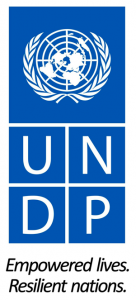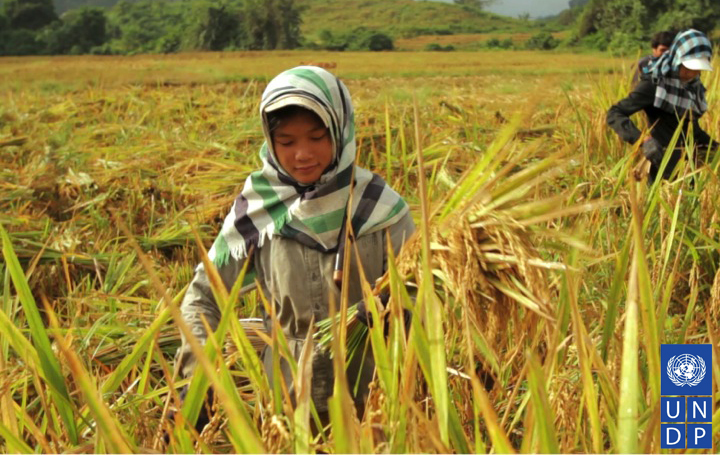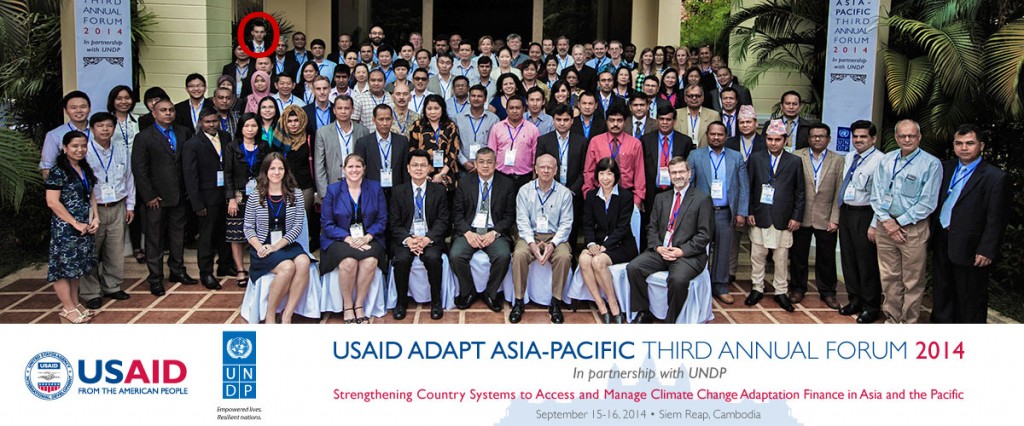By Judson Peck, M.S. Environmental Policy ’15
“Mitigating and adapting to climate change is entirely compatible with pursuing development.” – Helen Clark, UNDP Administrator
UNDP and Climate Change
 Efforts to tackle climate change have largely been focused on isolated, distinct, and often competing goals and actions on mitigation (lowering emissions) or adaptation (reducing vulnerability). Incremental reductions in greenhouse gas emissions and climate vulnerabilities are important steps. However, long-term climate change management requires a shift from sectoral perspectives to a holistic approach that incorporates climate change mitigation and adaptation into environmental and sustainable development goals and planning processes. Such an approach recognizes that climate change responses are closely intertwined with development choices and actions involving multiple sectors, stakeholders, and ecosystems.
Efforts to tackle climate change have largely been focused on isolated, distinct, and often competing goals and actions on mitigation (lowering emissions) or adaptation (reducing vulnerability). Incremental reductions in greenhouse gas emissions and climate vulnerabilities are important steps. However, long-term climate change management requires a shift from sectoral perspectives to a holistic approach that incorporates climate change mitigation and adaptation into environmental and sustainable development goals and planning processes. Such an approach recognizes that climate change responses are closely intertwined with development choices and actions involving multiple sectors, stakeholders, and ecosystems.
The United Nations Development Program (UNDP) is working towards building a new holistic development paradigm—a paradigm that mainstreams climate change into development planning at all levels. Working on the ground in 177 countries, UNDP connects people at all levels of society to knowledge, experience and resources to meet development challenges and develop local capacity to help empower lives and build resilient nations.
Climate change is a priority for UNDP because the impacts of climate change undermine development efforts and affect the poor in particular. UNDP provides technical and financial assistance to developing countries’ governments to pursue green, low-emission and climate-resilient development (Green LECRD). The pursuit of Green LECRD will allow developing countries to strengthen the capacity of national and sub-national governments to respond more effectively to climate change and transform their development path to a low-emission and ecologically sustainable future.
Internship
My internship is with the UNDP-GEF team based in the UNDP Asia Pacific Regional Center (APRC) located in Bangkok, Thailand. I work within the Climate Change Adaptation Team to strengthen and expand UNDP’s services to systematically support adaptation to climate change. UNDP defines adaptation as “climate-resilient economic development and sustainable livelihoods, especially for vulnerable populations—the poor, women, and indigenous peoples.” Together with its partners, UNDP supports climate change risk management in over 80 countries in the context of agriculture and food security, water resources, coastal zone development, public health, and climate change-related disaster risks. A diverse range of innovate projects include installing solar-powered irrigation pumps in Cambodia, drought-tolerant seeds in Ethiopia, coastal mangrove afforestation in Bangladesh and early warning systems in Nepal. With financing from a number of global adaptation funds, such as the Least Developed Country Fund, Special Climate Change Fund, Adaptation Fund and several bilateral funds, UNDP helps developing countries catalyze investment into green technologies, practices and enterprises that will make low emission, climate resilient environmentally sustainable development not only possible, but also economically attractive.

A large extent of my work is on facilitating the economic vitality of adaptation strategies for the private sector (i.e. farmers, fishermen, small businesses). The scale of adaptation necessary to make vulnerable populations resilient to climate change is beyond the scope of the public sector—including governments and national and international aid organizations combined. It is thus imperative that the private sector invests in adaptation. However, there are many financial, social, cultural and political constraints that prevent the private sector from investing in climate change adaptation. I am specifically researching the constraints for small-scale private businesses in developing countries to invest in climate change adaptation. Identifying these constraints will be useful for development agencies grappling with ways to catalyze climate change adaptation in the private sector. Creating a policy environment that facilitates private-sector investment is also regarded as a more sustainable response to many aspects of adaptation.
My Experience at UNDP
One of the most valuable aspects of interning at UNDP is the opportunity to work with experts from around the world and to be involved in meaningful work that positively impacts peoples’ lives. A recent highlight was traveling to Siem Reap, Cambodia to participate in a joint USAID-UNDP forum on strengthening country systems to access and manage climate change adaptation finance in Asia and the Pacific. Over 100 country delegates from 17 Asian and 4 Pacific countries attended the two-day workshop to learn about ways to access international funding and integrate climate change adaptation into their national budgets. Asia alone suffers on average a $50 billion annual cost from disasters. However, of the nearly $360 billion spent globally on climate change last year, only 6% was spent on adaptation mechanisms. Although mitigation efforts are equally as important, countries need to invest in adaptation to increase their resilience to climate impacts. The workshop consisted of presentations from experts and discussions among countries—of which I facilitated breakout sessions for Malaysia and Pakistan.

From Bard CEP to Bangkok, Thailand
UNDP is a rigorous and fast-paced environment that requires proficient skills in qualitative research, quantitative analysis and effective writing and communication that have been primed during my first year at Bard CEP. In addition, the holistic approach of Bard CEP academics in approaching environmental issues from policy, economic, science and law disciplines, is proving critical in analyzing UNDP-funded projects. By providing avenues for funding and extensive networking for extended internships, the Bard CEP program has made this incredible opportunity at UNDP a reality.

